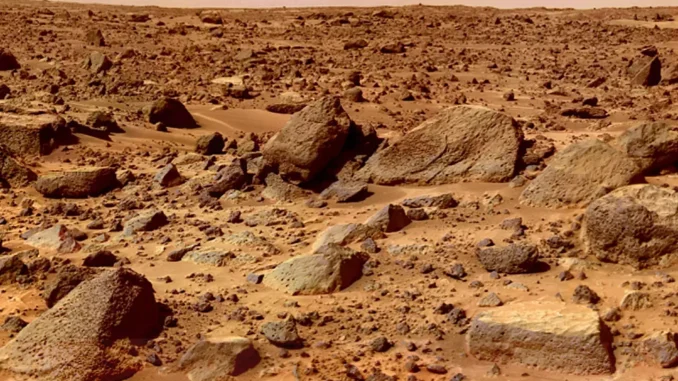
Mars, the rusty, enigmatic neighbor in our solar system, just revealed a hidden secret: a colossal cache of frozen water buried beneath its equatorial plains. This groundbreaking discovery, made by the European Space Agency’s Mars Express mission, has scientists buzzing with excitement about the implications for Martian history and the potential for future exploration.
A Frozen Ocean Lies Beneath the Dust
Using sophisticated radar technology, researchers have detected layers of ice stretching for hundreds of kilometers, reaching thicknesses of over 2 miles in some places. This frozen wealth holds enough water to cover the entire planet in a shallow ocean, 1.5 to 2.7 meters deep!
“This is the largest amount of ice ever detected outside the polar ice caps on Mars,” declared Dr. Sebastian Walter, lead author of the study published in Geophysical Research Letters. “It’s like finding a hidden ocean under the Martian desert.”
A Glimpse into Mars’ Wet Past
The newfound ice deposit, nestled in the ancient Medusae Fossae formation, is believed to be remnants of a much wetter Mars billions of years ago. Back then, vast rivers carved canyons and lakes dotted the landscape. But as the planet’s climate shifted, this water became trapped as ice beneath the surface, according to The Business Insider.
“This discovery rewrites our understanding of Martian history,” said Dr. Elsa Boschi, a co-author of the study. “It confirms that Mars once had a much more active hydrological cycle, and it raises intriguing questions about whether this ice ever interacted with liquid water, potentially providing a habitat for microbial life.”
Fueling the Quest for Martian Life
The presence of liquid water, even if ancient or temporary, is crucial for the existence of life as we know it. This discovery reignites the flames of hope for finding microbial life on Mars, either within the ice itself or in potential underground lakes connected to it.
“This finding is a game-changer for our search for life on Mars,” said Dr. David Paige, a Mars researcher at the University of California, Los Angeles. “The ice in the Medusae Fossae formation is a prime target for future missions, as it could potentially harbor preserved biosignatures from Mars’ watery past.”
“This discovery is a major leap forward in our understanding of Mars and its potential to harbor life,” concluded Dr. Javier Gomez-Elvira, project scientist for the Mars Express mission. “It’s a reminder that Mars is a dynamic and complex planet, full of surprises waiting to be uncovered.”
